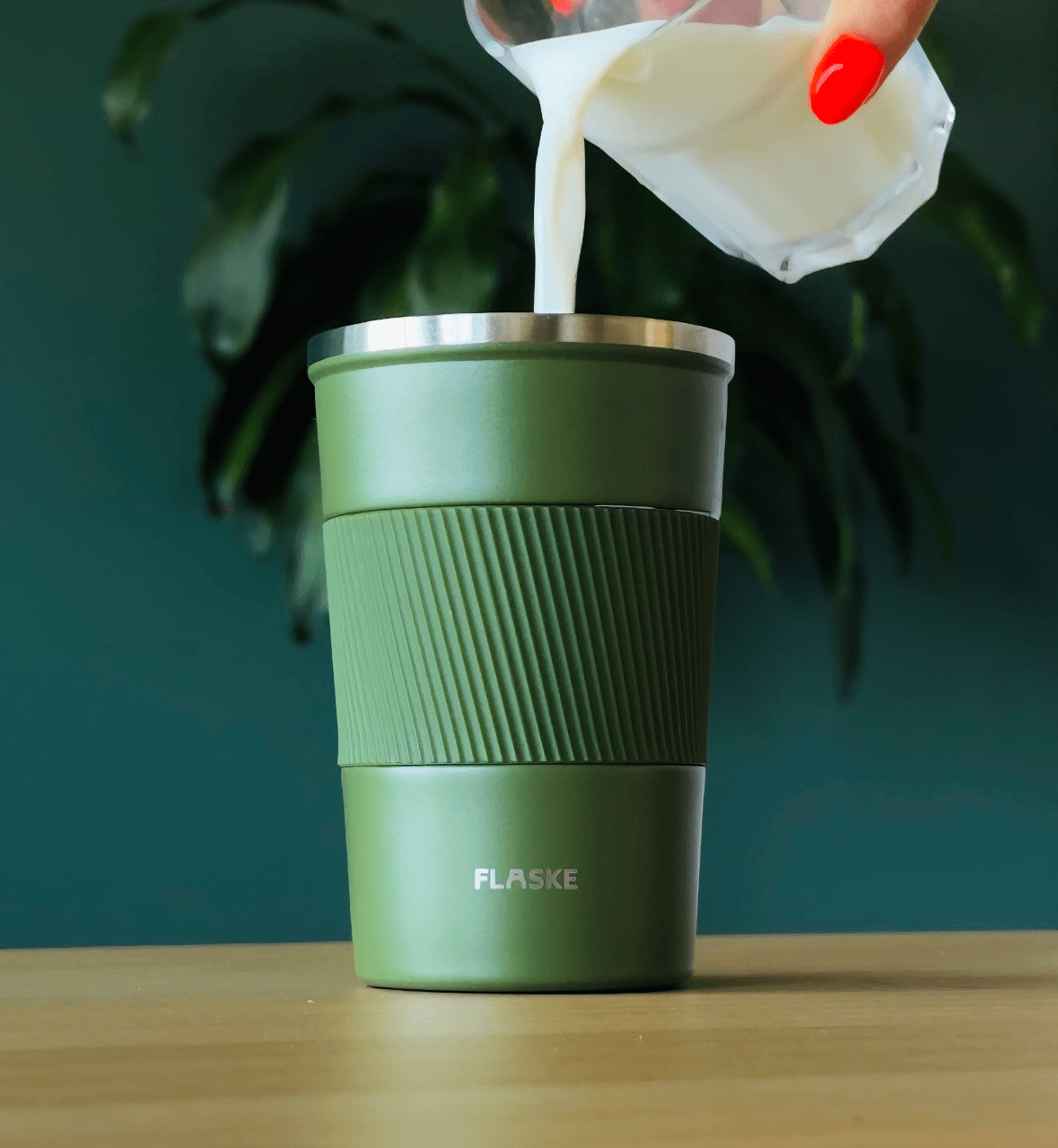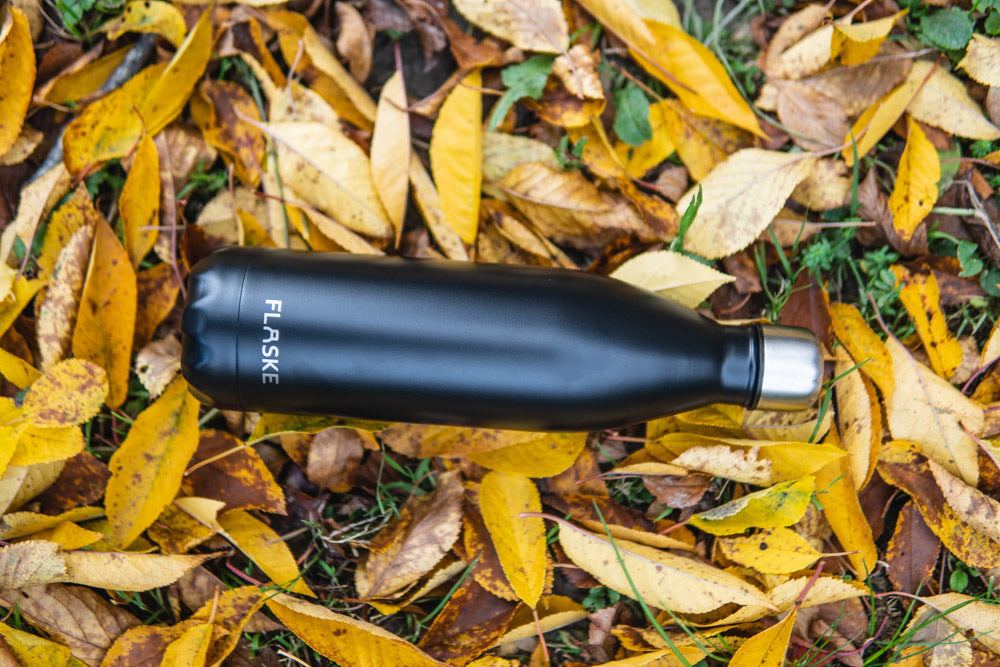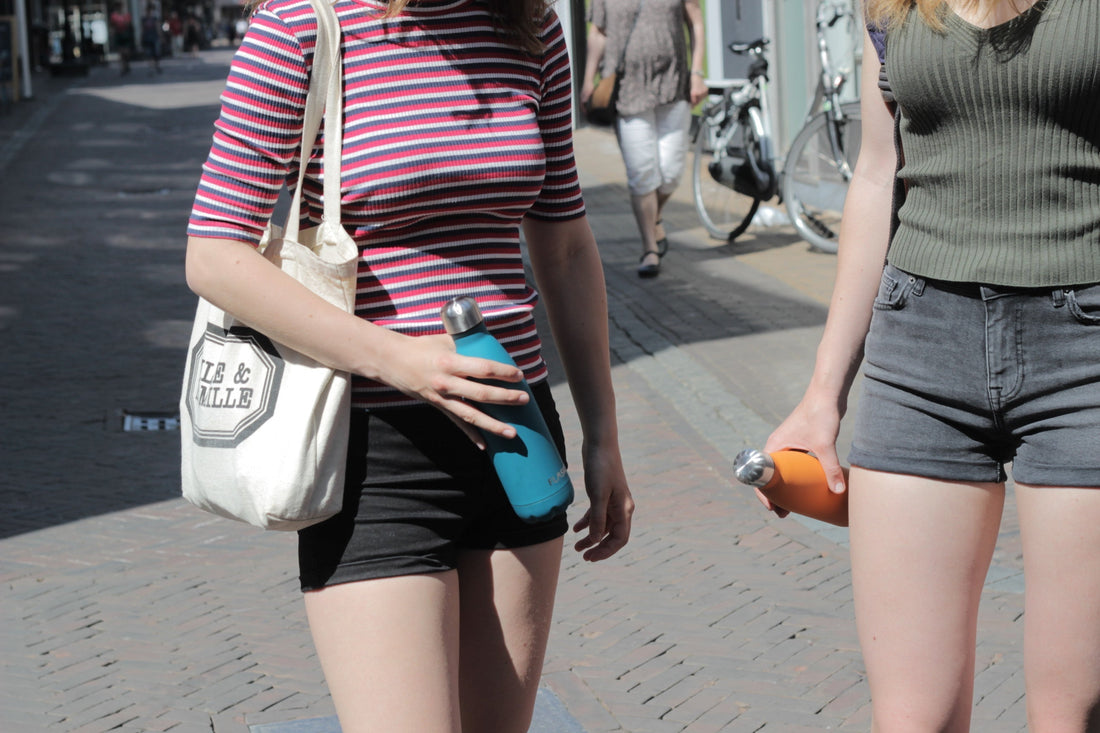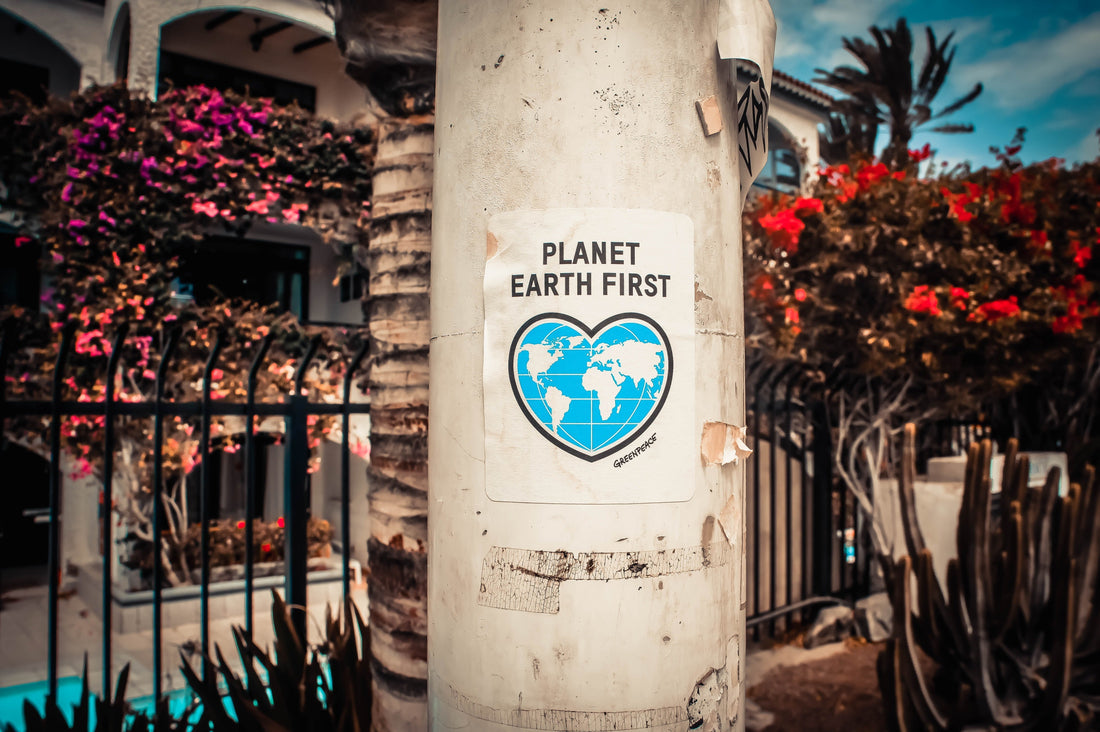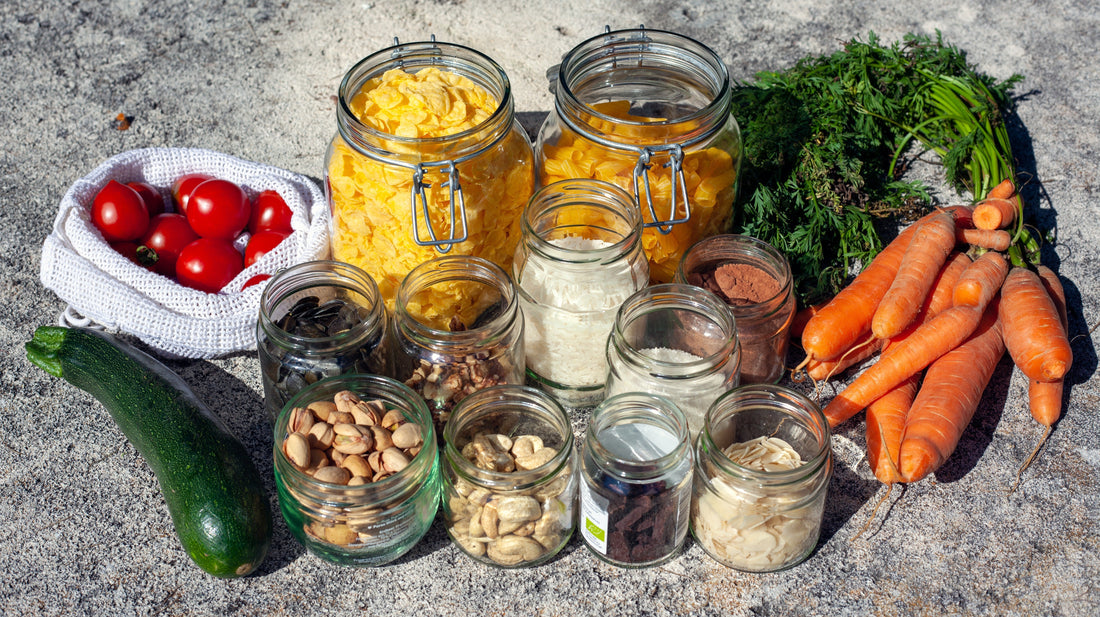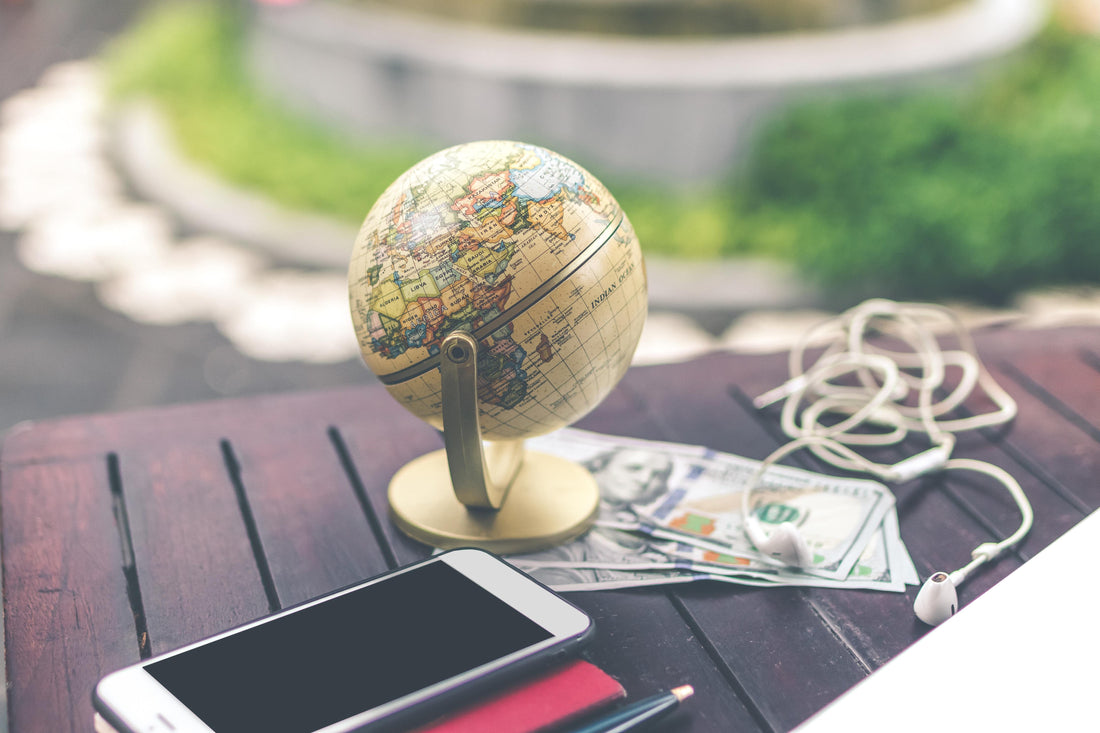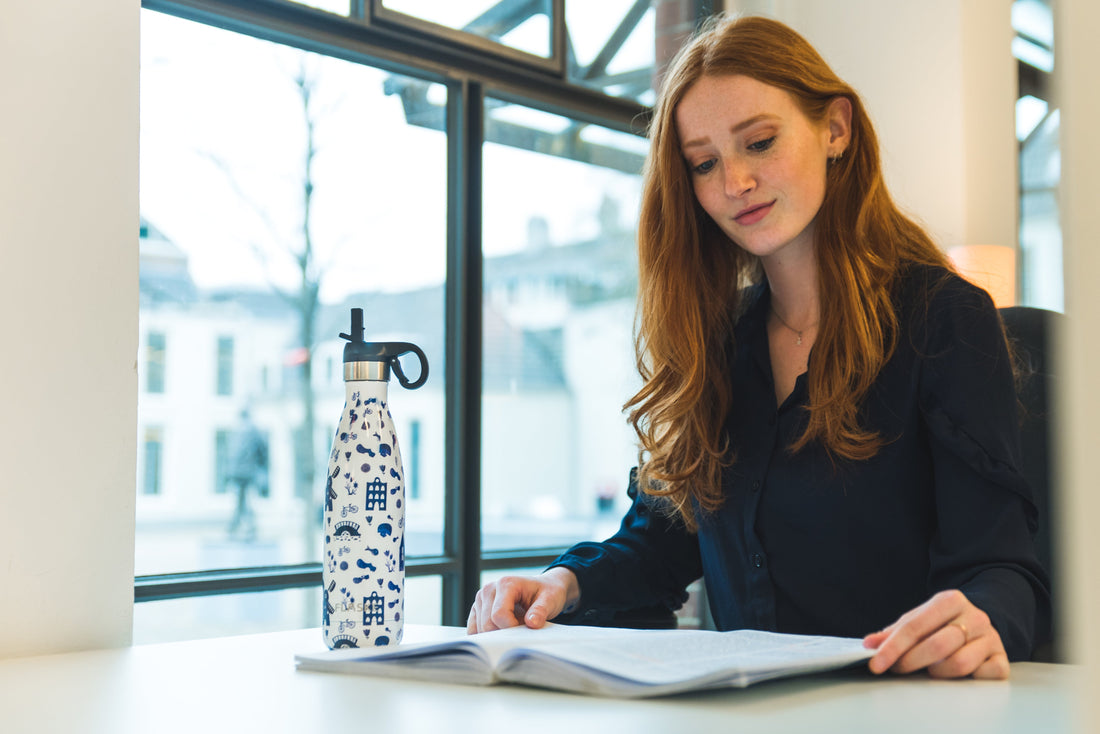Blogs - Interesting Blogs & News
Get Ready For Plastic Free July 2021
Millions of people have committed to ditching plastic for one month and living a less wasteful lifestyle. This year I’ll also be taking the Plastic Free July Pledge. I hope you’ll join me! What is Plastic-Free July? Plastic Free July is an annual global challenge organised by The Plastic Free Foundation, a non-profit established in 2017. They launched the first Plastic Free July Eco-Challenge in 2011. Now a global operation, Plastic Free July encourages people to give up single-use plastics for one month. Throughout the 31 days, you’ll refuse plastic bags and turn down disposable bottles. You’ll avoid plastic-packaged foods and opt for recyclable containers such as glass, metal, and paper. The challenge aims to raise awareness about plastic pollution by making you understand how dependent you are on single-use plastics. The foundation believes that one month without plastic is enough to help you build everyday habits that benefit the environment. Read Also: Why we support the Plastic Soup Foundation How to use less plastic in your daily life If you’ve already signed up for the Plastic Free July Challenge, congratulations! The next step is preparation. You’ll find the challenge much easier if you start using less plastic before July 1st comes around. Here are some tips to help you deal with the most common plastic problems. Buy a reusable water bottle Single-use plastic bottles and other drinks containers are some of the most common items found in beach cleanups. According to the 2020 International Coastal Cleanup Report, volunteers collected over 1.8 million plastic beverage bottles and over 600 thousand plastic lids. In fact, seven of the top 10 collected items were related to food and beverage packaging/containers. Fortunately, it’s easy to cut single-use containers out of your daily life. During Plastic Free July, get used to carrying a reusable water bottle in your bag wherever you go. You can refill your bottle at work or use an app to find out where you can refill it for free while out and about. The FLASKE Bottle comes in four sizes so that you can stay hydrated no matter the size of your bag. Also Read: Promote your brand with custom water bottles Start bringing your own bags If you don’t already have a reusable cotton tote, now is the time to get one. Tuck it into your bag or jacket pocket so that you can refuse plastic bags on your next trip to the store. A couple of mesh bags are also useful when you’re buying unpackaged vegetables from the grocery store. Make your toiletries and cleaning supplies Many toiletries and cleaning products are easy to make at home with everyday kitchen supplies like baking soda, vinegar, and coconut oil. It’s a fun way to spend an afternoon, especially for families. Alternatively, you can stick to your Plastic Free July pledge by buying unpackaged toiletries or toiletries in recyclable packaging. You can often find soap and shampoo bars without packaging or in cardboard boxes. Also, search for plastic-free deodorants, washable makeup pads, and metal safety razors. Additionally, choose cleaning brushes, cloths, and sponges made from eco-friendly and biodegradable materials instead of plastic. If you want to buy liquid soaps, shampoo, or cleaning products, try to source your nearest zero-waste store. Some high street cosmetic stores, like The Body Shop, have refill stations. This means you can buy their products without buying a new container. Use reusable sanitary products There are many inexpensive zero-waste alternatives to tampons and disposable pads. These reusable alternatives include menstrual cups, washable pads, and washable period underwear. Shop online with care When you buy something online, it might come in plastic packaging. During the Plastic-Free July Challenge and beyond, check the company packaging policy before purchasing a product. To keep it simple, only shop from eco-friendly online stores that package their products in recyclable materials. You can also reduce plastic waste when shopping online by placing larger orders from the same retailer instead of ordering single items from different stores. That way, your items will be packaged together. Also Read: Best sustainable welcome gifts for new employees Eat homemade meals Food wrappers and takeaway containers are also commonly used plastic items. You can massively reduce your plastic consumption and eat healthier by cooking meals at home. Choose fresh ingredients and lose vegetables instead of ready meals and buy dry foods in bulk instead of small packs. You can get creative with herbs and spices instead of buying premade sauces or buy products in reusable containers. If you’re worried about food waste, have a couple of reusable food containers ready. You can store the leftovers and eat them for lunch the next day. Prepare your drinks at home Instead of getting a takeaway coffee when you’re out, make your tea, coffee, or other beverages at home. Put them in a travel coffee cup and take them anywhere you want. Why not experiment with these four fruity iced tea recipes. If you prefer to buy your drinks from a café, remember to bring a reusable coffee flask or choose to drink your beverage in the store. Also Read: Swapping disposable cups for a reusable coffee cup Keep a plastic diary Plastic is integrated into so many everyday products that you might not realise how much plastic you use. Keeping track of the plastic products you use most often will help you understand what changes you need to make. There are a couple of ways to keep track of your plastic consumption. You could make a list in a notebook, use a spreadsheet, or download the MyPlasticDiary app. Take advantage of Plastic Free July resources The Plastic Free July initiative offers tips and resources to help you get started and ditch plastic. On their website, you can access informational videos, checklists, and plastic-free ideas. You can also download a Plastic Free July poster and help raise awareness of the challenge or follow the Plastic Free July Facebook page. Check your trash Looking in your bin will teach you a lot about your wasteful plastic habits. If you find that your bin is mostly filled with disposable food containers, think about buying a reusable food pot. If it’s mostly food packaging, try shopping at a zero-waste store or buying in bulk instead. If single-use cups and plastic bottles take up a lot of space, maybe you need a coffee flask or a stainless steel water bottle. Get Ready This challenge will not be easy, so get ready in June. If you make one change every day from today, you’ll find July 1st is less of a shock. For help and support, why not encourage your friends, family, and work colleagues to use less plastic for 31 days? It’s time to start the eco-friendly journey. Are you ready to sign up for the Plastic Free July Challenge?
Learn more8 Reasons to Take A Reusable Water Bottle Everywhere
Whether you're going on vacation, working out at the gym, organising a summer picnic, or just going about your daily life, there are many benefits to taking a reusable water bottle everywhere you go. Reasons to ditch single-use plastic water bottles and start carrying a reusable stainless steel water bottle range from concerns about the amount of plastic already polluting the oceans to concerns about plastic bottle toxicity. There's even a financial benefit when you ditch disposable bottles and refill a reusable water bottle instead. I used to buy bottled water all the time. Since buying a reusable stainless steel water bottle, I never drink bottled water unless it's absolutely unavoidable. Here are some of the most persuasive reasons to take a reusable water bottle everywhere. 8 Reasons to Take a Reusable Water Bottle Everywhere To Reduce Plastic Waste Billions of single-use plastic bottles are produced every year and only a small percentage of them are recycled. Even plastic waste that is recycled can only be reused a certain number of times as the fibres degrade. Therefore, most of the world's plastic waste ends up in landfill sites or in the oceans where it leaches chemicals, pollutes soil and harms wildlife. In the 2019 International Coastal Cleanup, over 1.9 million plastic bottles were collected from coastal areas worldwide, making plastic bottles one of the most common everyday items that pollute the oceans. To Protect Yourself from Toxic Chemicals It's no secret that plastic contains chemicals. Although plastic bottles may be okay to use when new, disposable bottles leach toxins when they become old, damaged or exposed to hot temperatures. That's why you should never reuse a single-use water bottle. The extent to which plastic bottles are responsible for health issues is still disputed but chemicals, such as BPA, have already been linked to infertility, hormone imbalance, cardiovascular and metabolic diseases. Nowadays, most people know to avoid BPA, but many people are unaware that several popular bottled water brands still contain significant amounts of microplastic. To Improve Your Overall Health Aside from toxic chemicals, taking a water bottle everywhere will remind you to drink more water. With a reusable water bottle in your bag, you'll be able to drink without the hassle of finding a shop or vending machine and paying out every time you feel thirsty. People who carry reusable water bottles are more likely to stay hydrated. Staying hydrated can elevate your cognitive and physical health by improving your focus and digestion, minimising headaches, clearing your skin, speeding up muscle recovery, and more. Also Read: Stay Hydrated: refill a reusable water bottle To Track How Much You Drink A reusable water bottle doesn't just encourage you to drink more water; it also helps you keep track of your daily consumption. If your target is to drink two litres of water every day, you only need to refill a 500 ml water bottle four times and make a note when you do. Likewise, during or after exercise, the right-sized reusable water bottle can prevent you from over or under hydrating. It's much easier to keep track of your daily water intake when drinking from a bottle instead of a glass. To Promote Plastic-Free Living If you're already aware of plastic problems and you're trying to reduce waste, then a reusable water bottle is an easy first step. Additionally, taking a reusable water bottle everywhere you go will help promote plastic-free alternatives to your friends, family, co-workers, or anyone who sees you using it. Before long, reusable stainless-steel water bottles will be the social norm and disposable bottles a thing of the past. To Save Money It's also important to note that reusable water bottles are lighter on your wallet in the long term. A 500 ml FLASKE Bottle costs just under €30. With the correct care, one bottle can last a lifetime. Comparatively, if you buy bottled water every day, you're probably already spending at least €30 every month. Even if you reuse disposable bottles (which you shouldn't), you're still going to save money by buying a high-quality stainless steel water bottle. Because Water Tastes Better in Stainless Steel Water Bottles Because you can't safely wash a plastic bottle with hot water, it's very easy for bacteria and bad odours to accumulate inside a plastic bottle, reusable or not. On the other hand, food-grade stainless steel is completely safe to wash with dish soap and boiling water so you can clean your bottle properly after each use. Additionally, because high-quality stainless steel is corrosion and rust-resistant, you don't get a metallic taste to your water. Because It Looks Better Than a Plastic Bottle For some people, style isn't important; for others, it's everything. Whichever group you fall into, you'll probably agree that reusable water bottles with unique prints, a huge range of colours, matt or metallic finishes, is much cooler than a transparent plastic bottle with a flimsy label. Several FLASKE Bottles are even available with name engraving so you can personalise a reusable water bottle. Also Read: 10 coolest FLASKE reusable water bottles to buy online Take Back Control With A Reusable Water Bottle Hopefully, you're convinced by these eight reasons to buy a reusable water bottle and take it everywhere. Whether you're motivated by environmental issues, health concerns, financial savings, or you just want something more stylish for your office desk; there are several benefits to using a reusable water bottle instead of disposable water bottles. Don't waste time; take a look at the FLASKE Collection, order your favourite bottle and start using it the very next day!
Learn moreThe Perfect Summer Set: Be More Sustainable This Season
Think about the amount of plastic waste there is in your picnic box? Single-use plastic cutlery, disposable cups, plastic drinks bottles, and cling-film wrapped sandwiches… Spending more time outside often means slipping into wasteful habits. This season, enjoy the summer sun whilst protecting the environment with the perfect zero-waste summer set!
Learn more26 Small Ways To Help The Environment
There is some good news for those who are yet to begin their eco-friendly journey. You don’t need to be an activist or join protests to make the world more sustainable. Living an eco-friendly lifestyle won’t turn your life upside down either. There are several small ways that you can help the environment without significantly changing your daily routine.
Learn moreKnow 30 Top Tips for Going Zero-Waste with Flaske
The zero-waste movement combats waste, not with any new technology, but simply by minimising or eliminating waste from daily life. Perhaps that sounds impossible but going zero-waste is easy. You just need to think more wisely before making everyday purchases. Before you know it, zero-waste becomes a sustainable habit. Use these 30 top tips for going zero-waste to get you started.
Learn more11 Tips for Zero Waste Travel
You might think that a zero-waste lifestyle and travelling are two concepts that can’t go together. It’s true that travel is full of disposable products but don’t despair, with some simple travel and packing hacks, it’s easy to make your adventures more sustainable.
Learn moreHow I Saved 200 Euros per Month on Sustainability
The average person buys 3 plastic bottles per week totalling 8€. That’s 32€ per month and a whopping 384€ per year! What if you didn’t need to spend 8€ each week on disposable bottles?
Learn more